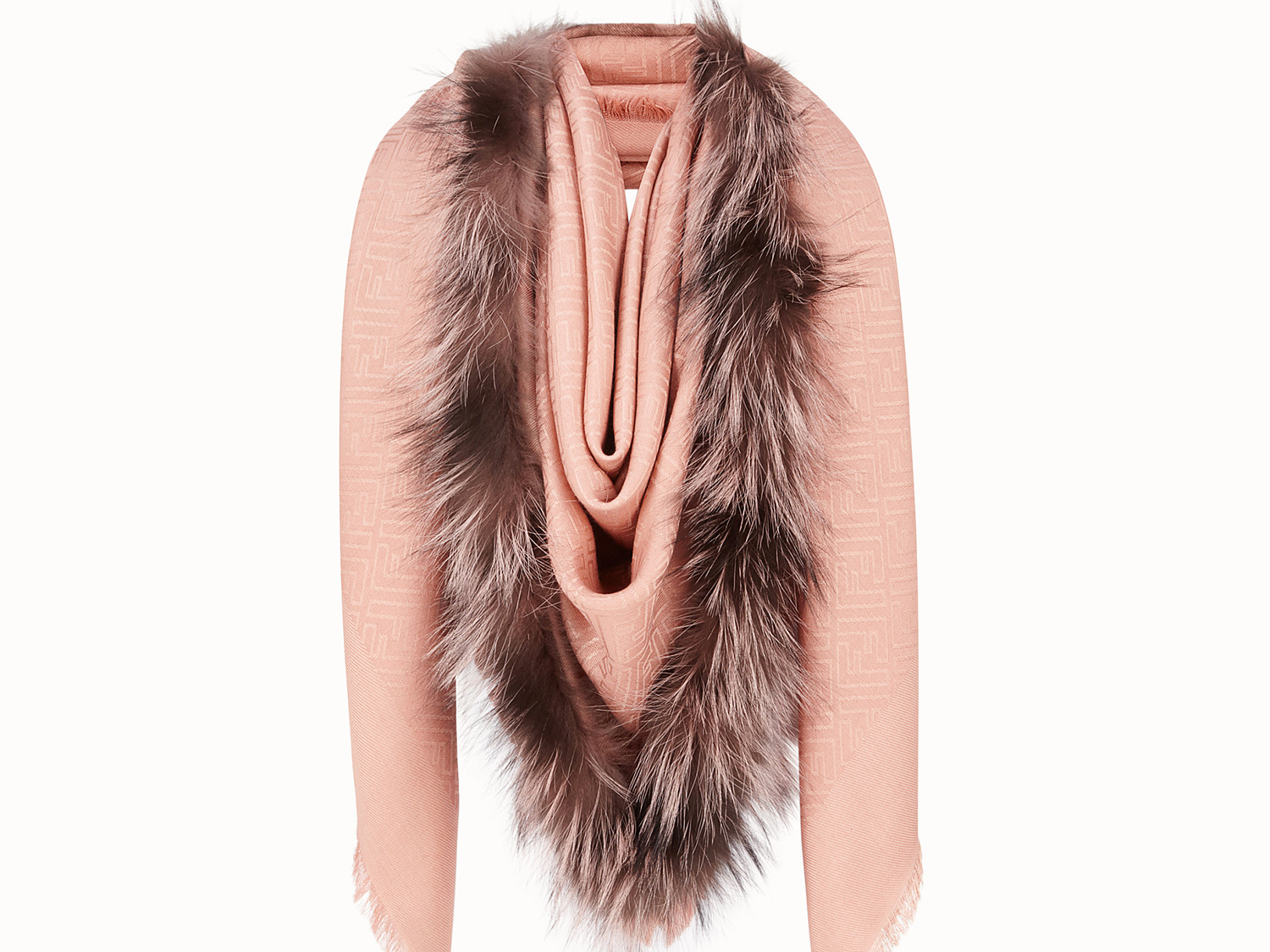- In 2018, multiple retailers became embroiled in controversies.
- Both H&M and Revolve were widely criticized for selling what were deemed to be offensive T-shirts, while Victoria’s Secret was criticized for not making its lingerie sizes more inclusive.
- In the beauty industry, skin-care brand Sunday Riley admitted to asking employees to write positive reviews of its products, and Ulta Beauty was accused of reselling used makeup.
- Fendi sold a $990 scarf that customers said resembled a vulva, prompting the brand to remove it from the market.
No retailer is free from criticism, but some brands faced more backlash than others in 2018.
Specifically in the fashion and beauty industries, consumers were quick to speak out against products they felt were misleading or offensive. Brands were also criticized for alleged murky business practices.
Because there were tons of examples this year, we’ve rounded up some of the worst retail fails and controversies that happened in 2018.
Backlash began after H&M released an advertisement that consumers felt was racist

One of the biggest retail controversies happened only one week into 2018. In January, fast-fashion retailer H&M was accused of racism when it cast a black boy to advertise a sweatshirt that read "coolest monkey in the jungle."
Though H&M removed the sweatshirt from its website and apologized in a statement, which was sent to INSIDER, many Twitter users felt the brand's comment wasn't enough.
"We sincerely apologize for offending people with this image of a printed hooded top," a representative for H&M said in a statement to INSIDER. "We believe in diversity and inclusion in all that we do and will be reviewing all our internal policies accordingly to avoid any future issues."

Celebrities also spoke out against the advertisement. The Weeknd, who was in the process of releasing a collaboration with the brand, said on Twitter that he was "shocked and embarrassed" by the advertisement and would no longer work with H&M.
The controversy didn't end there. One week after the advertisement was released, protests broke out at H&M stores in South Africa. Protesters reportedly knocked down clothing racks, ripped clothing apart, and destroyed stores, forcing H&M to temporarily shut down its South African branches.
Ulta Beauty also faced criticism when it was accused of allegedly reselling used makeup early this year

In January, Twitter user fatinamxo, who claimed to be a former Ulta Beauty employee, said in a series of now-deleted tweets that the retailer resold used products when she worked there. The tweets quickly went viral, and other employees began sharing their stories.
While some employees said that they'd never been asked to resell returned products at other Ulta Beauty stores, one customer alleged that they'd found fingerprints in a highlighter palette that was meant to be new. Another alleged that they'd purchased foundation from the retailer which appeared to be new, but was covered in product once they'd opened the bottle.

At the time, a representative for Ulta Beauty provided a statement to INSIDER and said that it was looking into the matter, as selling used products does not align with its company policy. One month later in February, the retailer was sued by two women as a result of the allegations.
In September, consumers expressed outrage towards Revolve and LPA for selling fat-shaming sweatshirts

Revolve began selling a sweatshirt in September that read "Being Fat Is Not Beautiful, It's An Excuse." The shirt, which was was designed by clothing brand LPA, retailed for $168 and was sold up to size XL. As consumers pointed out and criticized, the sweatshirt was also advertised exclusively on a thin model.
"Revolve thinks its okay to market this sweatshirt - which only comes up to an XL, by the way - by putting it on a thin model?" Fashionista.com deputy editor Tyler McCall wrote on Twitter. "Considering Revolve doesn't even have diverse influencers this is....A Choice."
Twitter users immediately spoke out against the shirt, and asked for its removal. In a statement sent to INSIDER, a representative for Revolve said that the LPA collection was created to take ownership of derogatory statements made towards various celebrities, including Lena Dunham, Emily Ratajkowski, Cara Delevingne, Suki Waterhouse, and Paloma Essler.

The sweatshirt was eventually removed from the website, the two brands issued apologies for the apparel, and the rest of the collection was never released. Dunham also apologized for her connection to the sweatshirts on Instagram.
"Without consulting me or any of the women involved, Revolve presented the sweatshirts on thin white women," Dunham wrote on Instagram. "Never thinking about the fact that difference and individuality is what gets you punished on the Internet, or that lack of diversity in representation is a huge part of the problem (in fact, the problem itself.) As a result, I cannot support this collaboration or lend my name to it in any way."
In October, Fendi became the center of a retail fail when it sold a scarf that customers said resembled a vulva

Soon after Fendi released a $990 pink circle scarf printed with the brand's signature logo and lined with brown fur on its website, Twitter users began to mock the "Touch of Fur" design, saying that the scarf resembled a vulva.
However, some said they would consider wearing it, while others took issue with the fact that the stole was made with real fur. Seemingly as a result of the discussion online, Fendi removed the scarf from its website.
That same month, skin-care brand Sunday Riley got caught up in a controversy after someone claiming to be a former employee leaked a company email

On October 18, Redditor throwawayacctSRiley wrote a post entitled "Sunday Riley Employee: We Write Fake Sephora Reviews." In the thread, the Reddit user said that employees were "forced to write fake reviews for [the brand's] products" over email. Attached to the post was a screenshot of one of those emails.
In the leaked email, employees were encouraged to write positive reviews on Sephora's website. In a statement provided to INSIDER, a representative for Sephora said the company "has very strict brand rules regarding [its] Ratings and Reviews," and had "been in touch with Sunday Riley on this matter, and they have committed to adhering to [Sephora's] review policy."
Sunday Riley's official Reddit account, created on that same day, acknowledged that the email was real, and said that "at one point, we did encourage people to post positive reviews at the launch of this product, consistent with their experiences."

In a later report, INSIDER revealed that though the brand's eponymous founder Sunday Riley markets herself as a "product formulator," her credentials are murky at best. Contrary to various news reports, the Sunday Riley CEO did not study science or graduate from the University of Texas. It's also unclear as to who formulates each of her products.
Deciem also encountered trouble when founder Brandon Truaxe announced the company was shutting down

Deciem, a company that offers affordable skin-care products through lines such as The Ordinary, faced a series of controversies in 2018. In February, the brand was accused of being racist when its founder Brandon Truaxe seemed to suggest in an Instagram comment that a woman of color should use a skin-lightening product.
At other points throughout the year, Truaxe took to Instagram multiple times to share erratic-seeming posts. In February, he attacked competitor skin-care brand Drunk Elephant in a post, later apologizing, and in April, the founder asked customers to call the police about his lost luggage.

However, everything came to a halt when Truaxe attempted to shut down the company in October. Despite his efforts, Estée Lauder, a minor investor in the company, went to court to request the removal of Truaxe from his position at Deciem. The request was approved, and Truaxe was replaced by Deciem's co-CEO Nicola Kilner.
More recently, comments about size inclusion and transgender models made by a Victoria's Secret executive infuriated consumers

During an interview with Vogue, Ed Razek, chief marketing officer at Victoria's Secret parent company, L Brands, said that the retailer has no plans to add larger sizes to its lingerie range.
"We market to who we sell to, and we don't market to the whole world," Razek told Vogue.

He also made controversial comments about model casting.
"If you're asking if we've considered putting a transgender model in the show or looked at putting a plus-size model in the show, we have," Razek said. "We invented the plus-size model show in what was our sister division, Lane Bryant."
"Shouldn't you have transsexuals in the show? No. No, I don't think we should," Razek continued. "Well, why not? Because the show is a fantasy. It's a 42-minute entertainment special."

Twitter users immediately called Razek out for his comments, as did celebrities and competitor lingerie companies. While Rihanna never spoke out directly against the brand, BuzzFeed and The Daily Mail reported that the Savage X Fenty creator appeared to like a tweet that criticized Razek's comments.
http://instagr.am/p/BqDZbrEhez8
In a bolder statement, ThirdLove, a lingerie brand that Razek mocked in his interview, ran a full-page New York Times ad to defend itself.
Eventually, Razek released an apology statement on Twitter, where he said his previous comments "came across as insensitive," and that Victoria's Secret "absolutely would cast a transgender model for the show."
Please read this important message from Ed Razek, Chief Marketing Officer, L Brands (parent company of Victoria’s Secret). pic.twitter.com/CW8BztmOaM
— Victoria's Secret (@VictoriasSecret) November 10, 2018
Similarly, Jan Singer, the Victoria's Secret CEO, stepped down from the company, seemingly as a result of the controversy.
Visit INSIDER's homepage for more.

